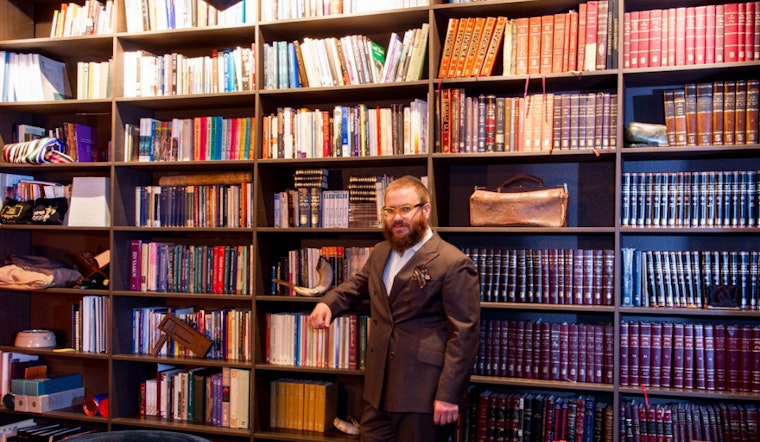
The Jewish Learning Institute (720 Lombard St.) has remained a bit under the radar in its eight years in North Beach, where it's catered to the spiritual, educational, and even romantic needs of a previously underserved Jewish population. But it's now drawing some attention as the latest casualty of a major rent hike, set to take place on February 1st. Given the increase, Rabbi Peretz Mochkin says it's unlikely the JLI will be able to remain at its current location.
Mochkin and his wife, Miryum, founded the Center in 2007 with the goal of "inspiring Jewish living and learning, and transforming Jewish life in the San Francisco area through Torah study." Peretz, who is Orthodox, is one of eleven children from a Brooklyn rabbinical family; he completed his own rabbinical studies in Israel, New York, and Los Angeles.
In the latter city, Peretz's friends introduced him to Miryum, one of five children from a rabbinical family who had studied at Jewish private schools and in Israel. The pair hit it off, and were married a few months later. They moved to Miryum's hometown of San Francisco in 2006, and now have five children of their own.
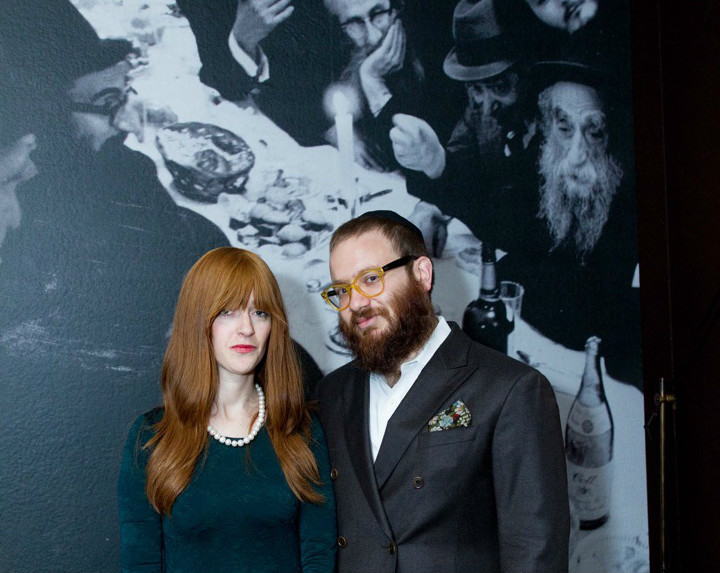 Miryum and Peretz Mochkin.
Miryum and Peretz Mochkin.
In their first year in the city, the couple gave private Torah and Hebrew lessons, then moved into an apartment on Lombard Street. They were able to set up the Jewish Learning Institute in the commercial area of the building, across from the parking lot that has since become the new North Beach Library. A residential rent increase eventually forced them to move house, but they continued renting the commercial space.
The Institute covers two floors: The Rabbi’s Study, located at street level, and the classroom/social area, set downstairs. Based on its name, the Rabbi's Study may sound fusty, but it's eclectically decorated, with turquoise velvet armchairs, a bi-colored plastic ram's head, and an entire wall dedicated to leather-bound books. The study reflects the center itself—a combination of tradition, modernity, comfort, and scholarship.
Rabbi Mochkin apologizes for not shaking hands with a female reporter, explaining that it's a religious requirement. "I shake hands with men, and my wife shakes hands with women. My wife will shake hands with you. I wanted to explain this to you, because people can find that it makes them feel I am not welcoming them, and I want to make sure you feel welcomed."
It's clear that he holds his wife in high regard. "She is my amazing partner in the JLI and in every other way—as the director and an instructor. We run this place together, and if she’s teaching, I take care of our kids and cook them dinner."
The Jewish Learning Institute has outlets in various cities, with an established curriculum. The North Beach location curates a range of cultural and religious events, including regular Friday evening, Saturday morning, and High Holidays services, and Kabbalah study on Tuesdays.
In addition to religious services, the Institute offers what Mochkin calls "the best Jewish education courses in San Francisco ... accessible, yet intellectually rigorous.” Between 10 and 25 adults attend each class, dedicated to topics both practical (marriage, parenting, money management) and cerebral (”The Jewish Afterlife," “Happiness.")
“We tackle vague topics in Jewish literature and culture, things people don’t know about or are on the fence about because they have misconceptions,“ explains Mochkin. Sometimes, they bring in authors for book signings and lectures, or screen relevant films. Mochkin even tries to accommodate working students by teaching some classes during lunch hour. Students' ages vary; some are doctors and lawyers seeking continuing education credits, while others are merely curious.
Being devout isn't a requirement, either. “Sometimes in a class full of students, I’ll be the only Orthodox Jew in the room," Mochkin says. “We are not aimed at being religious. We use Jewish knowledge and information to make people be their best selves and to bring that out into the world: to their neighborhood, their community, to getting politically involved. We can use old information to solve problems, because while modern circumstances may change, people don’t."
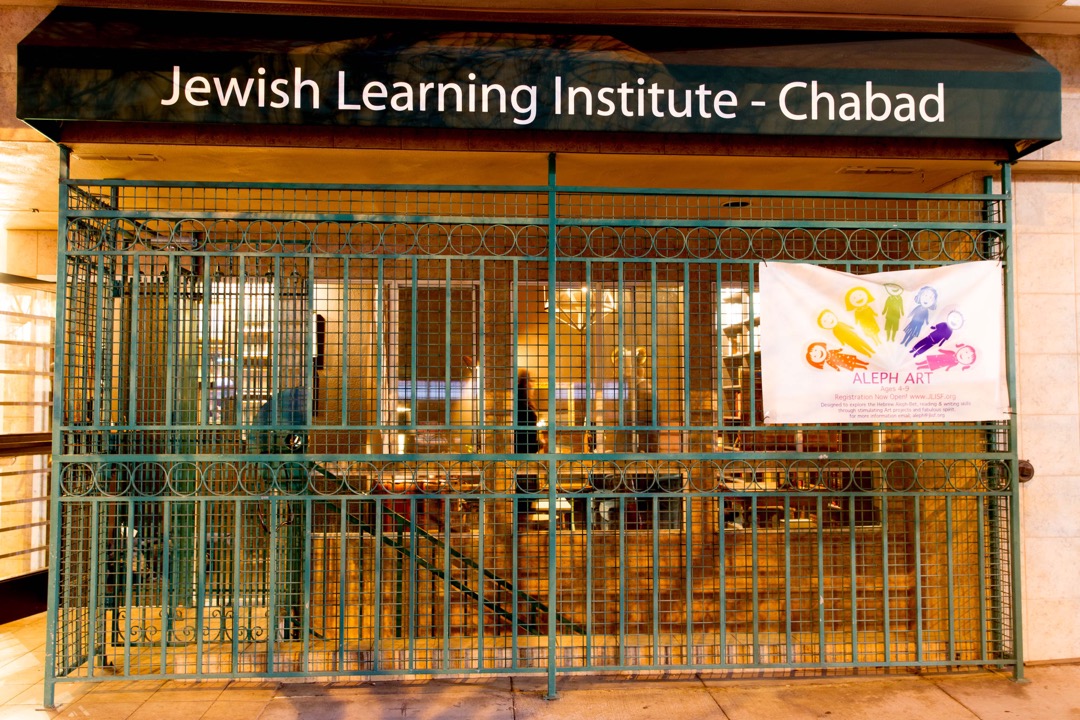
The JLI's prices are low, averaging $80 for six classes. Sometimes a class is underwritten by a donor, such as October's "Journey of the Soul," sponsored by Sinai Memorial Chapel. But donations are a major part of keeping the JLI afloat and allowing the Mochkins to keep costs low.
In addition to classes and services, the Institute provides a social outlet for both Jewish singles and families. One of its most popular programs is Zehut, which means “Identity,” and is geared towards young singles. It boasts 800 members, many of them recent transplants who work in the tech industry.
“When I first came to North Beach, I was the youngest person in the cafes at 25. At 33, I’m now older than many, because there are so many newcomers to San Francisco," Mochkin says. "These people are without family and connections, so we give them a spiritual family and community. I myself am a newcomer to San Francisco, so I can offer them knowledge of the newcomer’s experience. Miryum is a native, so she can offer them knowledge of the place.“
For Jewish families with children, the JLI offers Aleph Art, taught by Miryum. The class is designed to teach kids Hebrew through art and cooking, concentrating first on the alphabet before moving on to basic words.
“They’re an awesome addition to the neighborhood,“ says Shari Weissman, whose 8-year-old daughter Dani attends Aleph Art classes. Her 10-year-old son, Benjamin, also attends the JLI, studying Hebrew privately with Rabbi Mochkin. "We don’t belong to a synagogue, so this is how they receive their Jewish identity and education. It’s really nice for them to meet other Jewish kids in the neighborhood. They have a really good time at Aleph, painting, and cooking, and telling stories. They develop an interest in Jewish culture and religion that’s awesome to have."
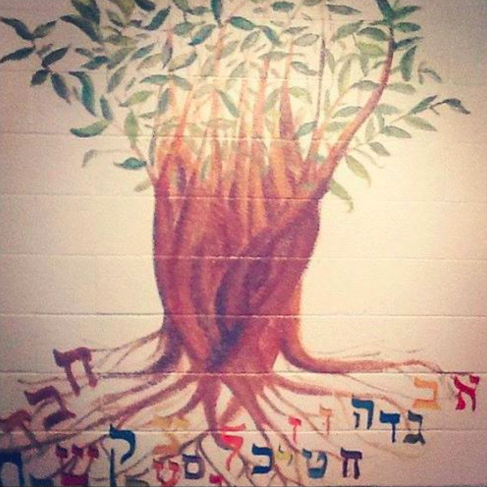
Lori Coleman, who lives at the bottom of Telegraph Hill, says her two children are the newest enrollees in Aleph Art. Miryum picks up at Garfield School when classes let out, then takes them down Filbert Street to attend the program. "We love the program," she says. "It gives the kids teachings in Jewish values. There is no synagogue in this part of the city. It gives us the opportunity to be Jewish!”
The Mochkins also host neighbors for communal holiday meals, serving "kosher-Californian dishes" like matzo ball soup, roast chicken, and roasted vegetables. Despite the lack of kosher-specific grocery stores in the neighborhood, Peretz says shopping isn't an issue. “A good 60 percent of the food at Trader Joe’s is kosher, and they have kosher chicken. Of course, all fruits and vegetables are kosher. And the coffee in North Beach cafes is kosher!”
Rabbi Mochkin admits that the idea of a Jewish center in North Beach is a bit unusual. “The question everyone always asks us is ‘Why North Beach? There are no Jews in North Beach.’ But it turns out that North Beach has a Jewish history. The first Yom Kippur service in San Francisco was held where the Scientology building is today. There’s a plaque. And I don't have documentation for it, but I've also heard the building of Sts. Peter and Paul Cathedral was partially financed by a Jew who was good friends with a priest there. They apparently traded lessons with each other in Latin and Hebrew.”
That connection didn't last—until the Mochkins moved in. "When we came to San Francisco in 2007, North Beach was the last neighborhood in San Francisco without a Jewish presence," Peretz says. "North Beach is a real neighborhood, and the Jewish here were underserved.“
Israeli-born Sharone Mendes-Nassi, owner of Grant Avenue shop Carmel Blue, agrees. The Mochkins “have built up a community that is rooted in North Beach, and uprooting it would be terrible.”
Given that they might lose their space in three months' time, the Mochkins and their supporters are scrambling to find a new space in North Beach. Ideally, it would be someplace that the Mochkin family can also live; driving or taking a bus to Sabbath services is forbidden for Orthodox Jews.
 Menorah-lighting in Ghirardelli Square.
Menorah-lighting in Ghirardelli Square.
In the meantime, the couple is continuing its contributions to neighborhood events: they'll stage a menorah-lighting at North Beach's Festival of Lights on December 10th, followed by a children’s Hanukkah celebration on December 13th in Washington Square Park.
"Judaism is about family and community," says Miryum. "It should feel comfortable … not like a great religious showdown."





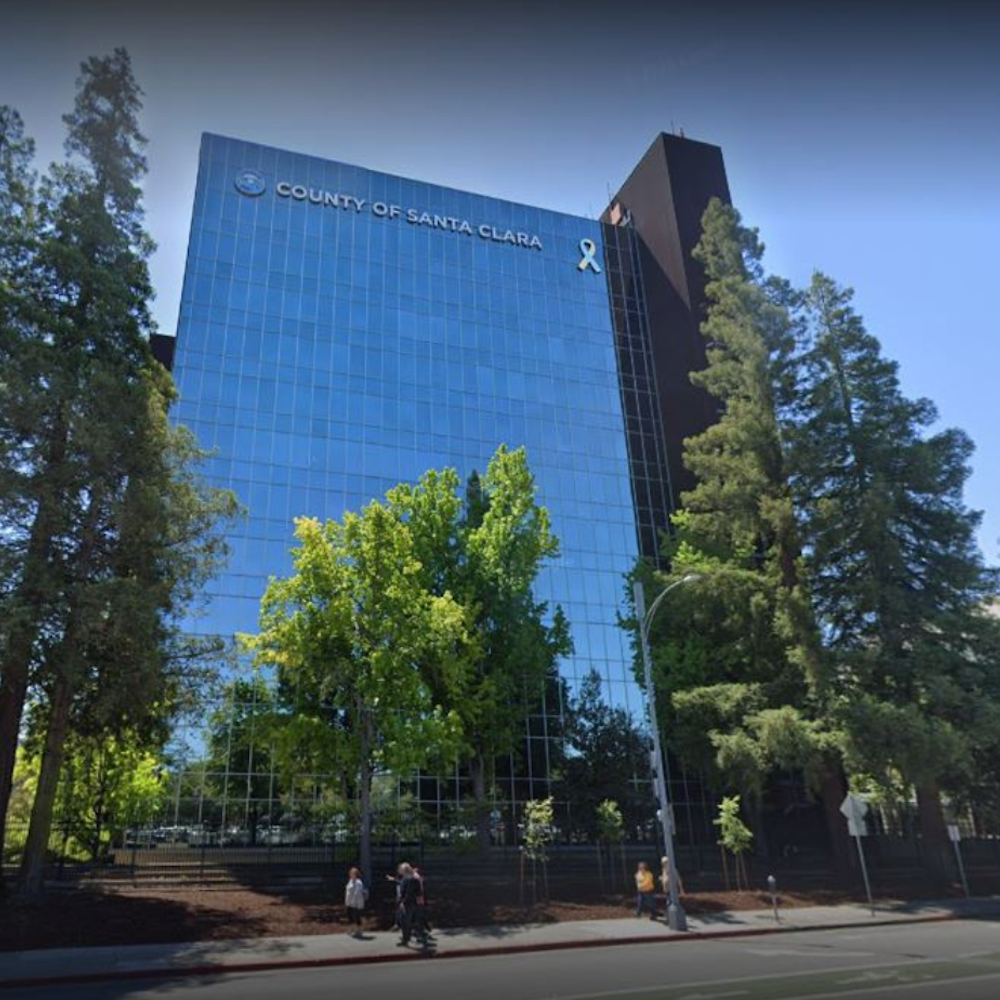
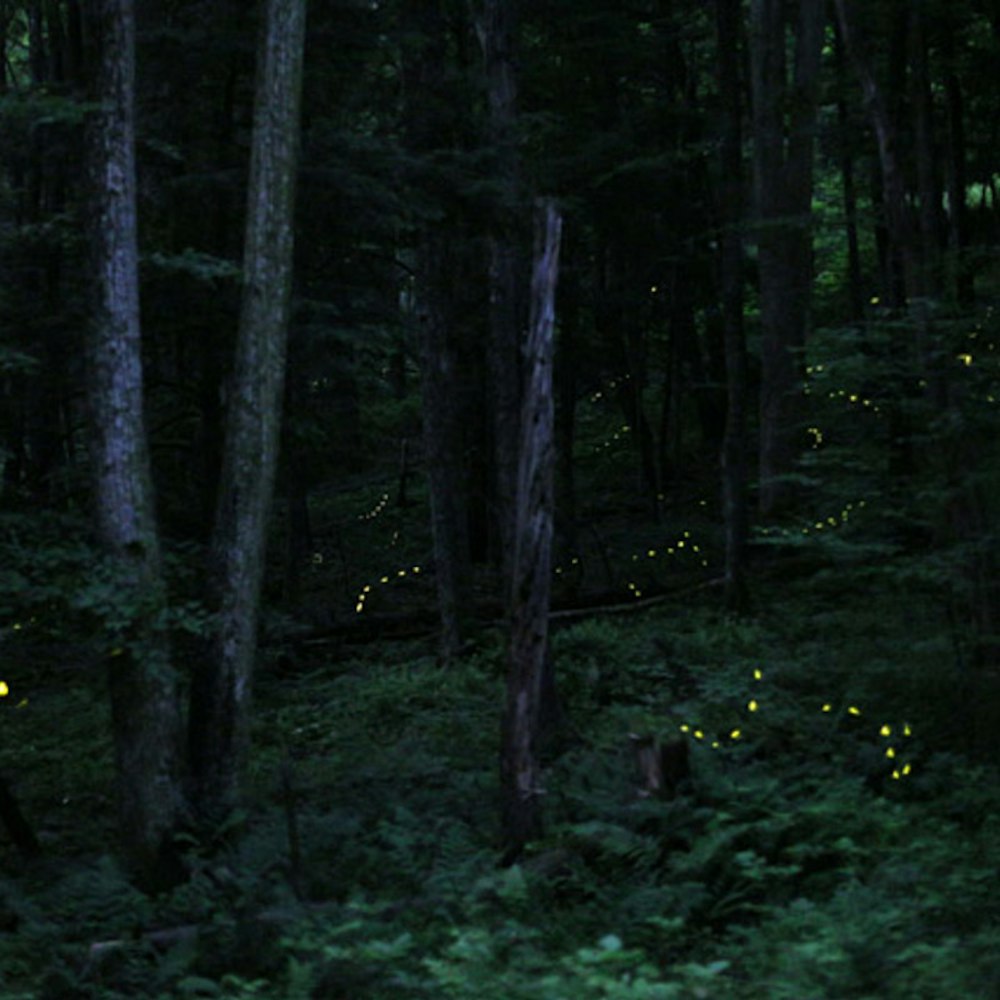
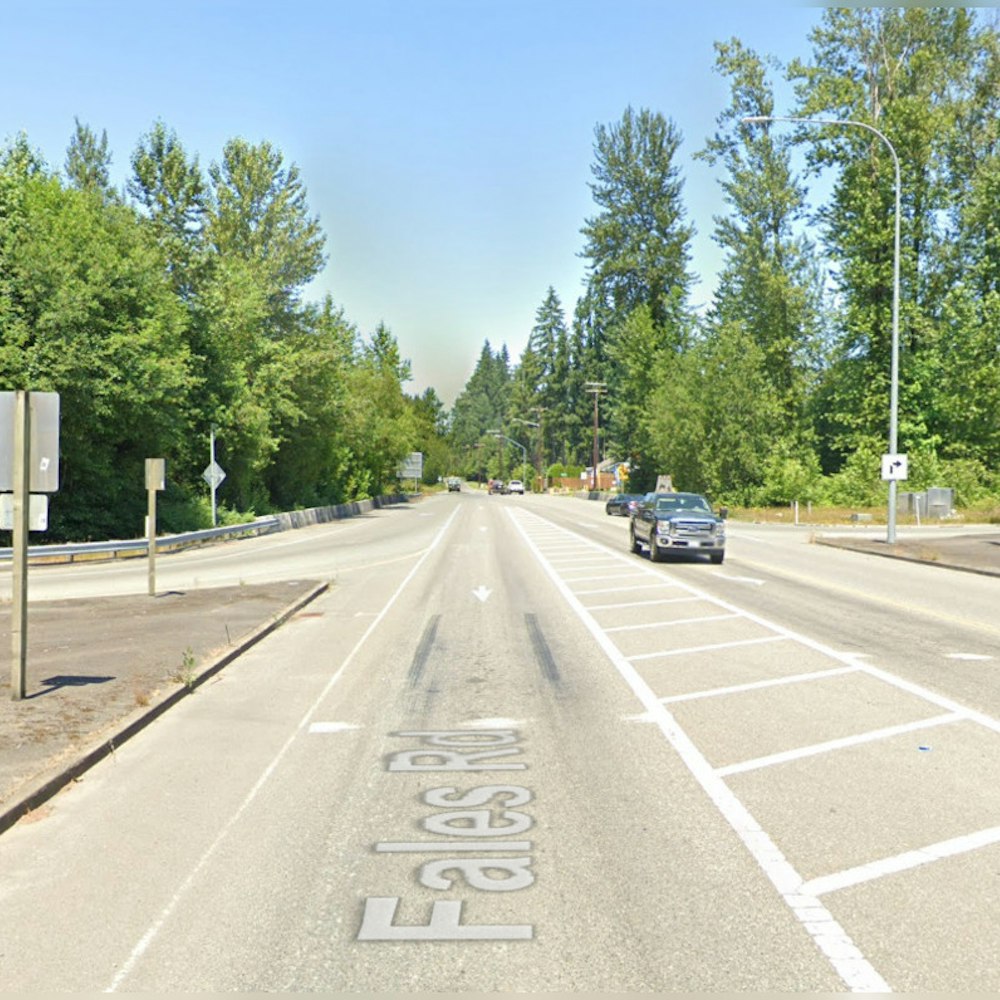
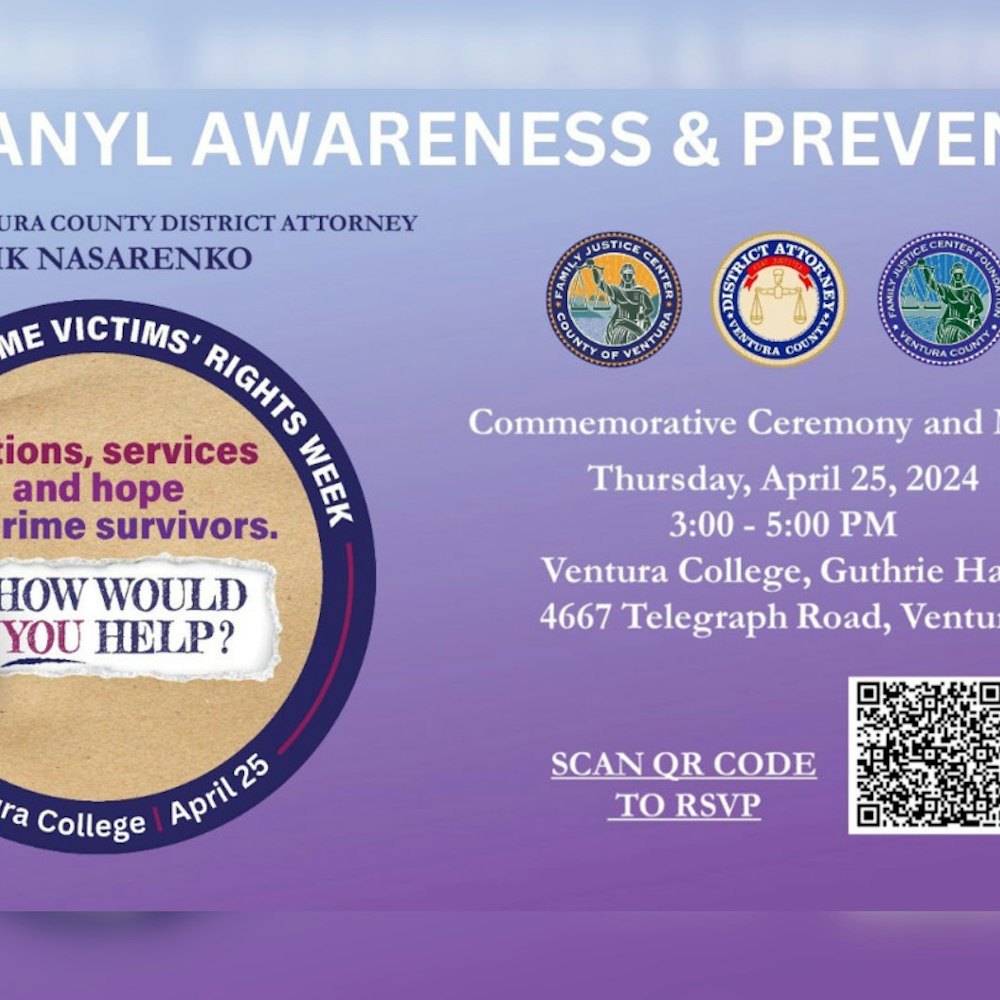
-1.webp?w=1000&h=1000&fit=crop&crop:edges)